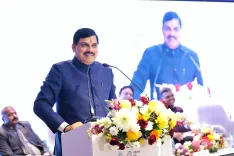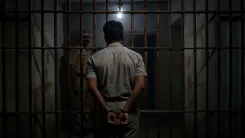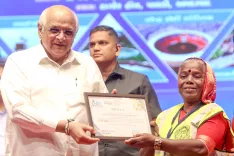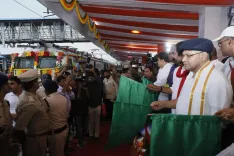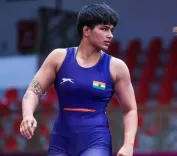How Does India’s Leadership Make Decisions Without External Influence?
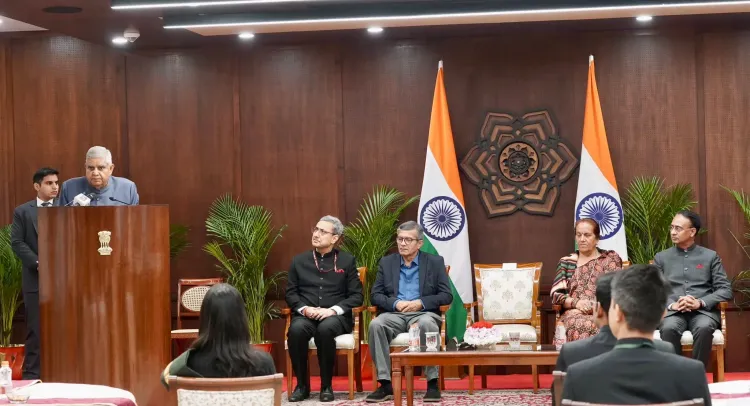
Synopsis
Key Takeaways
- India's leadership is committed to sovereign decision-making.
- Operation Sindoor serves as a strong message against terrorism.
- India's transformation includes significant advancements in various sectors.
- Education commercialization needs to be addressed.
- Youth are encouraged to embrace broader opportunities for nation-building.
New Delhi, July 19 (NationPress) Vice President Jagdeep Dhankhar addressed the 2024 cohort of Indian Defence Estates Service (IDES) officer trainees at the Vice-President’s Enclave, delivering a powerful address that emphasized India’s sovereign decision-making and rich civilizational heritage.
“Avoid being swayed by external narratives. All decisions in this nation as a sovereign entity are made by its leadership,” he asserted, seemingly targeting certain opposition factions questioning the current administration, alluding to US President Trump’s assertion that his involvement resulted in the ceasefire related to the India-Pakistan conflict.
Referencing ‘Operation Sindoor’ - a military response executed by Indian Security Forces following the Pahalgam terror attack, VP Dhankhar stated that the operation was not concluded but had reached a “temporary pause” after sending a strong warning to terrorist factions in Bahawalpur and Muridke.
“Some inquire why it was halted. We are a nation that values peace and non-violence... the land of Buddha, Mahavira, and Gandhi,” he added.
In a speech that covered governance, youthful aspirations, national security, and cultural pride, he urged the younger generation to be more informed about India’s democratic evolution and its status on the global stage.
He insisted that while India is part of the global community and engages in diplomacy, “no force on earth can dictate to India how to manage its affairs.”
His remarks are particularly relevant as numerous Western nations have scrutinized India’s stance on the Russia-Ukraine war and have threatened sanctions while India continues to import oil from Russia.
Touching upon India's transformation over the last decade, the Vice President praised advancements in rural development, infrastructure, and digital connectivity. “People from my generation never imagined there would be a toilet in every home, a gas connection, internet access, or world-class trains,” he remarked, emphasizing that ‘Viksit Bharat’ is not merely a vision but a current reality.
In a pointed critique of the increasing commercialization of education, he questioned the prevalence of coaching center advertisements. “This is not Bharat. We cannot allow commodification. We must revive the essence of the Gurukul,” he stated, encouraging the youth to break free from limitations and explore broader opportunities.
Labeling India’s demographic asset “a global envy,” he urged the officer trainees to dedicate themselves to nation-building while honoring India’s ancient legacy and sustainable aspirations for the future.

